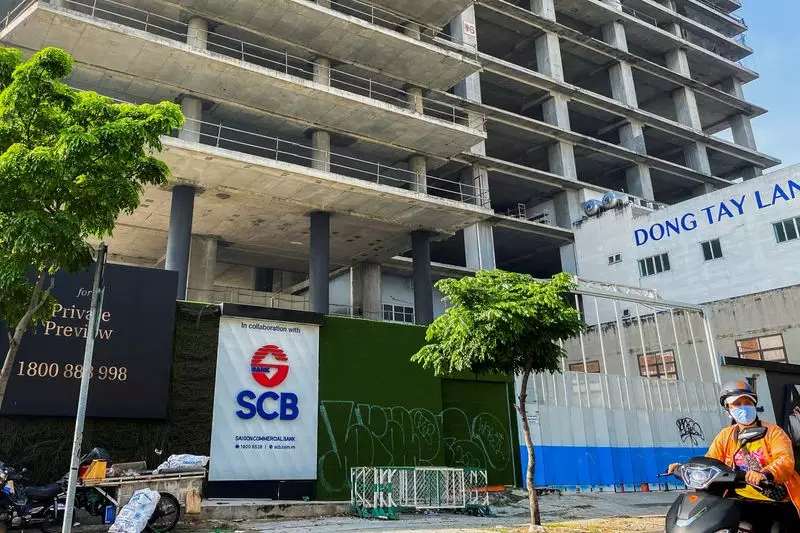The financial sector in Vietnam has been rocked by the revelation of a major fraud at Saigon Joint Stock Commercial Bank (SCB). According to documents obtained by Reuters, the situation at SCB is dire, with the bank on the brink of collapse. The new information provided to Reuters outlined the unprecedented scale of the cash injections required to keep the bank afloat and the potential damage to Vietnam’s financial system. The central bank of Vietnam has injected a staggering $24 billion in “special loans” into SCB as of the start of April, with lending averaging more than $900 million a month over the past five months. This rescue effort highlights the severity of the situation at SCB and the challenges facing Vietnam’s financial stability.
The massive cash injections into SCB, amounting to 5.6% of Vietnam’s annual economic output, have raised concerns about the impact on state coffers. The central bank’s intervention was prompted by a run on SCB following the arrest of real estate tycoon Truong My Lan in October 2022. SCB’s deposits plummeted by 80% to $6 billion by December 2023, and the bank could run out of deposits by mid-year if the current pace continues. With bad loans soaring to 97.08% of SCB’s credit balance as of October, the financial stability of the bank remains in jeopardy. The unprecedented level of support from the central bank reflects the urgency of the situation and the potential risks to the broader financial system.
The arrest and subsequent trial of Truong My Lan, the mastermind behind the fraud at SCB, has further complicated the situation. Lan, who was a prominent figure in Vietnamese finance, was sentenced to death after being found guilty of embezzlement and bribery. The legal proceedings have revealed the extent of the fraud, with Lan accused of siphoning off $12.5 billion in loans from SCB to shell companies while exerting control over the bank through proxies. Despite the official support for SCB, the bank continues to face liquidity issues and struggles to meet its financial obligations. The legal fallout from the fraud has raised concerns about the stability of the banking system and the broader economy.
In response to the crisis at SCB, the central bank and the government of Vietnam are exploring options for restructuring the bank. Private real estate company Sungroup has been assigned to develop a plan to revitalize SCB, but the success of this initiative remains uncertain. The restructuring plan is contingent on evaluating the real estate assets used as collateral by Lan and her companies. However, the legal status of these assets is often unclear, raising questions about their value and feasibility for recovery. The involvement of foreign investors and private sector entities is seen as essential to the restructuring process, but challenges such as foreign ownership restrictions and legal uncertainties complicate the path to recovery for SCB.
The crisis at SCB has exposed deep-seated vulnerabilities in Vietnam’s financial system and raised questions about the effectiveness of regulatory oversight. The unprecedented nature of the cash injections and the scale of the fraud at SCB underscore the challenges facing the banking sector in Vietnam. The legal and financial fallout from the fraud will have long-lasting implications for SCB and the broader economy. Moving forward, a concerted effort will be needed to stabilize SCB, restore investor confidence, and safeguard the integrity of the financial system in Vietnam.


Leave a Reply